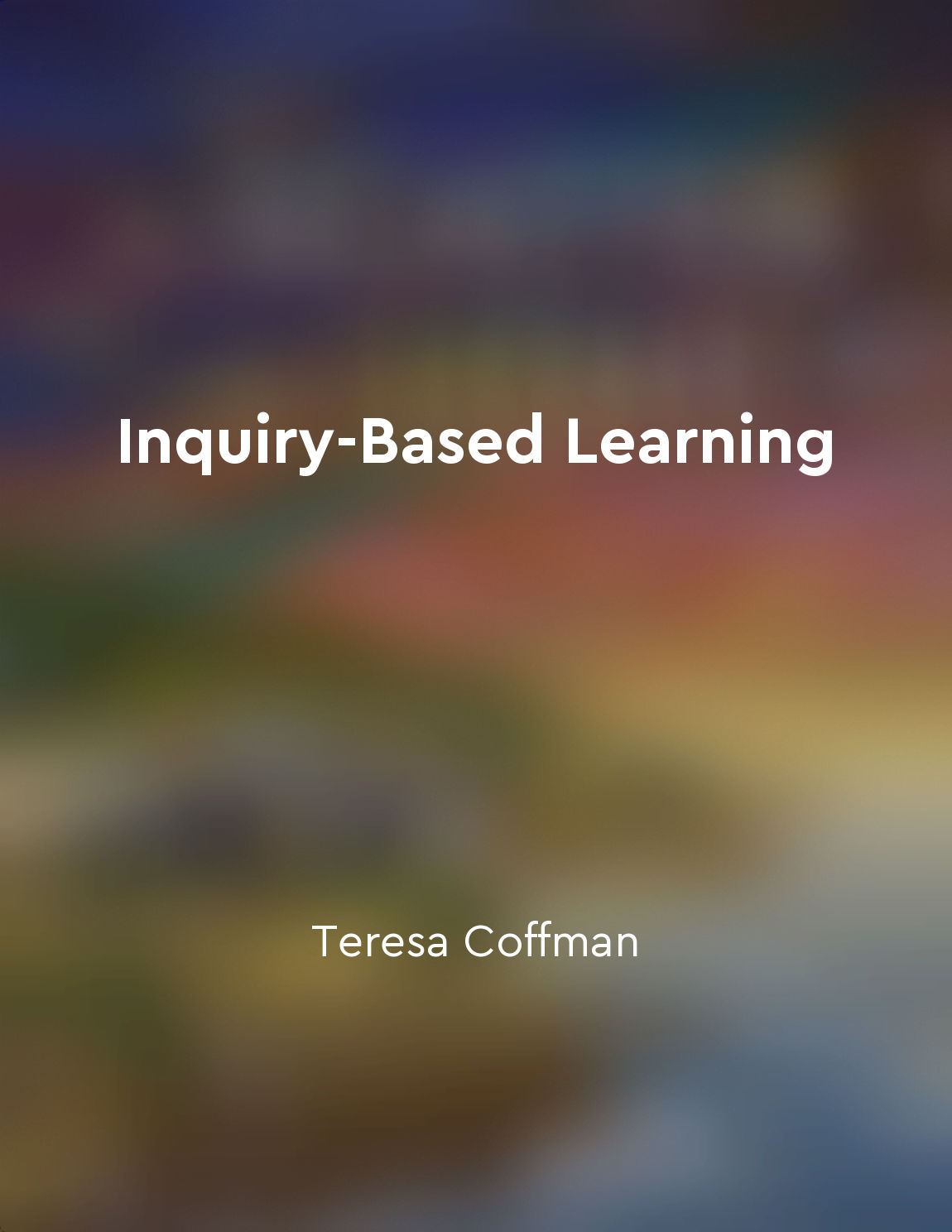Teachers guide students through the inquiry process from "summary" of Inquiry-Based Learning by Teresa Coffman
Teachers play a crucial role in facilitating the inquiry process for students. By guiding students through the various stages of inquiry, teachers help them develop essential skills such as critical thinking, problem-solving, and information literacy. Teachers provide support and scaffolding to help students formulate questions, gather relevant information, analyze data, and draw conclusions. They encourage students to explore multiple perspectives, consider different sources of evidence, and think critically about the information they encounter. Through careful questioning and feedback, teachers challenge students to deepen their understanding, make connections between ideas, and reflect on their learning. They help students navigate the complexities of the inquiry process, providing guidance when needed and allowing students to take ownership of their learning. Teachers create a supportive learning environment where students feel comfortable taking risks, asking questions, and exploring new ideas. They foster a sense of curiosity and wonder, encouraging students to be active participants in their own learning journey. By modeling inquiry-based practices themselves, teachers demonstrate the value of lifelong learning and the importance of asking thoughtful questions. They show students that inquiry is not just a classroom activity but a way of thinking and engaging with the world around them.- Teachers serve as guides, mentors, and facilitators in the inquiry process, helping students develop the skills and dispositions they need to become curious, critical, and independent learners. Through their guidance and support, teachers empower students to explore, discover, and create knowledge for themselves.
Similar Posts
Seek clarity
To think critically, it is important to seek clarity in all aspects of a situation or problem. Clarity involves understanding t...
Creativity is valued
Fareed Zakaria argues that in today's rapidly changing world, the ability to think creatively is more important than ever befor...
Cultivate a habit of asking questions
The key to unlocking the power of questions lies in the simple act of consistently asking them. By developing a habit of asking...
Think for yourself
The idea of thinking for yourself is a fundamental concept that is often overlooked in today's society. It is about having the ...
Seek multiple perspectives and viewpoints
To think is to consider multiple perspectives and viewpoints. It is not enough to simply rely on our own opinions and beliefs w...
Embracing ignorance leads to new insights and breakthroughs
Our understanding of the world is constantly evolving, driven by curiosity and a willingness to embrace what we don't know. It ...
It requires analyzing information objectively
Analyzing information objectively is a crucial aspect of critical thinking. This means looking at information without being inf...
Exploring multiple solutions increases the likelihood of success
When faced with a problem or challenge, it is natural for individuals to seek out a single solution that they believe will solv...

Experiment with new study strategies to find what works best for you
When it comes to studying, it's important to remember that one size does not fit all. What works well for one person might not ...
Practice reframing negative situations with better questions
When we face negative situations, it's easy to get caught up in feelings of frustration, anger, or helplessness. However, we ha...


